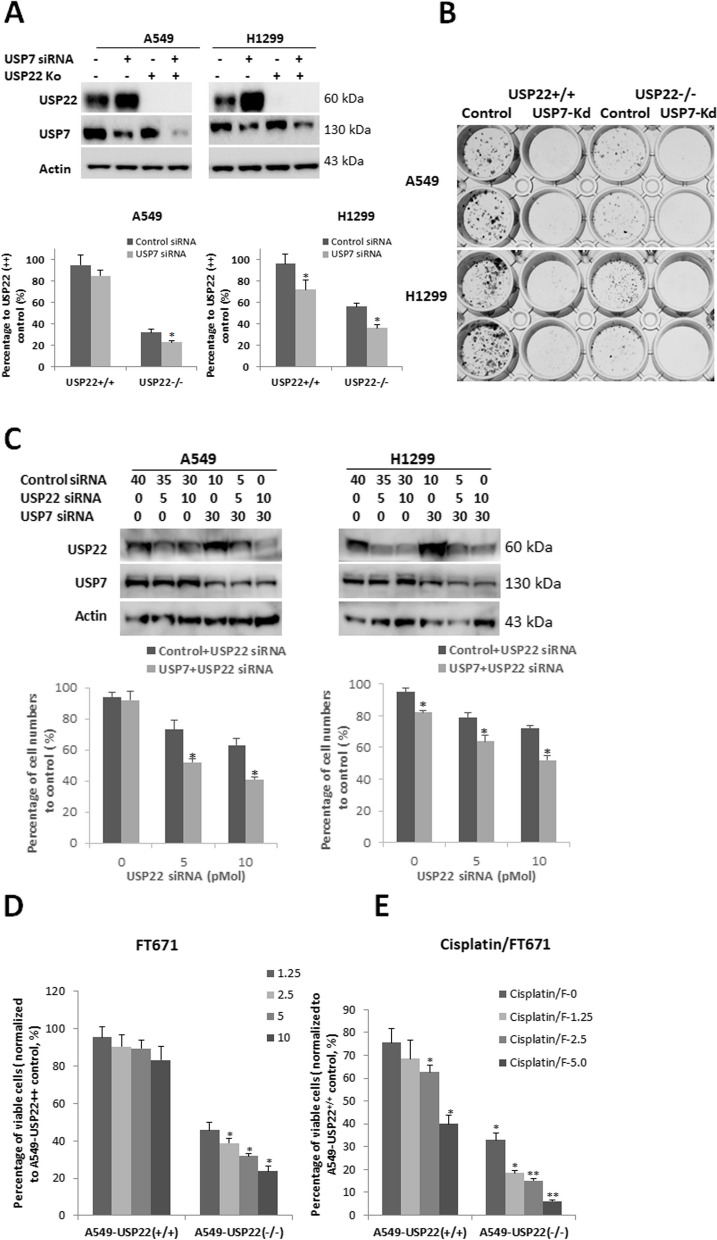Fig. 5.
USP7 inhibitor further suppressed cellular growth and sensitized USP22-Ko lung cancer cells to Cisplatin treatment. A.Western blot analysis of USP22 and USP7 (Upper panel) and the proliferation (Lower panel) in control siRNA and USP7 siRNA-transfected parental (USP22+/+) or USP22-Ko (USP22-/-) A549 and H1299 cells, *p<0.05, compared to control siRNA. B. The colony formation of parental and USP22-Ko A549 and H1299 cells upon USP7 knockdown (USP7-Kd). C. Western blot analysis of USP22 and USP7 (Upper panel) and relative cell percentage (Lower panel, normalized to controls transfected with scramble siRNA alone) in cancer cells transfected with a total of 40 pMol of USP22, USP7 or scramble siRNA alone or their combinations at 72h post-transfection, *p<0.05, compared to cell transfected with USP22 siRNA alone. D. Treatment of FT671 at 1.25, 2.5, 5, 10 μΜ significantly suppressed the proliferation of USP22-Ko A549 (A549-USP22-/-) cancer cells but not that of the parental A549 cancer cells (A549-USP22+/+). E. USP22-Ko A549 cancer cells were more sensitive to FT671 (1.25, 2.5, 5 μM) and its combination with Cisplatin (5 μM), *p<0.05, ** p<0.01, compared to 0 (Vehicle) or Cisplatin alone

